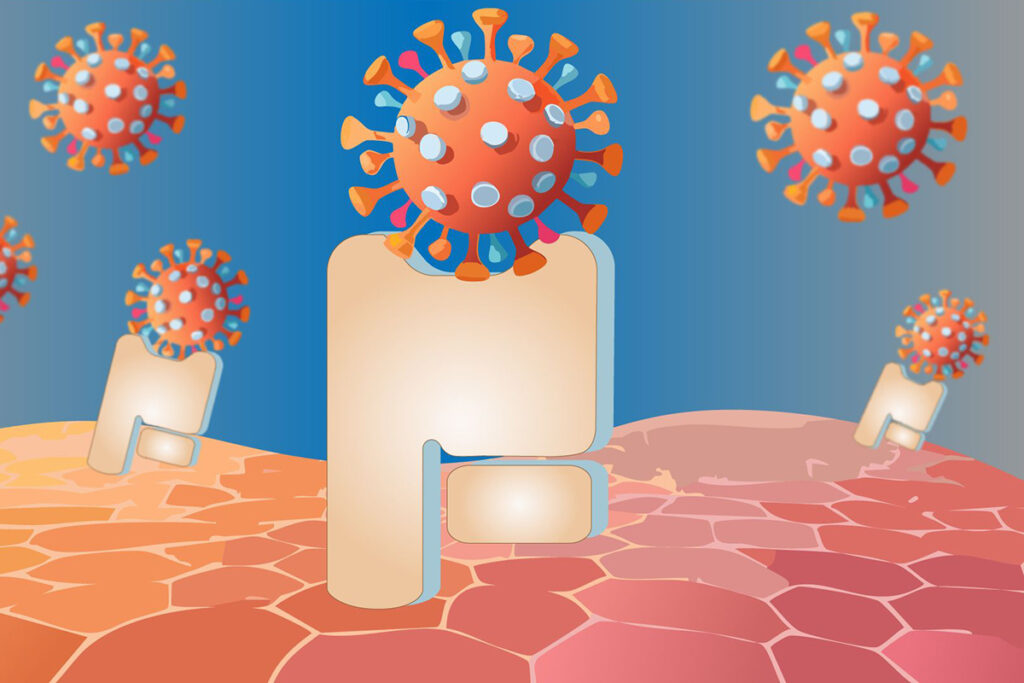Megan Baldridge, MD, PhD, Associate Professor, Departments of Medicine and Molecular Microbiology and Director of the Baldridge Lab, recently co-authored a Nature Microbiology publication on targeting the neonatal Fc receptor (FcRn) or dipeptidyl-peptidase IV (DPP4) using available therapies to prevent human astrovirus infection in human enteroid cultures. Harshad Ingle, PhD, one of the study’s co-first authors, is an Instructor in the ID Division.
Astroviruses are globally important pathogens that cause diarrheal illness, but little has been known about how they bind and enter human cells to infect. The Baldridge lab found that astroviruses take advantage of human proteins FcRn and DPP4 to infect cells, and that drugs developed for other conditions (autoimmune diseases and diabetes) that target these proteins can block infection.
There are currently no vaccines or therapeutics for astrovirus infections, so this is an exciting advance in terms of revealing multiple potential druggable targets and therapeutic options, as well as in potentially helping with future development of astrovirus models.
Megan Tierney Baldride, MD, PhD
Harshad Ingle, Jerome M Molleston, Paige D Hall, Duyen Bui, Leran Wang, Karan Bhatt, Lynne Foster, Avan Antia, Siyuan Ding, Sanghyun Lee, Daved H Fremont, Megan T Baldridge. The neonatal Fc receptor is a cellular receptor for human astrovirus. (2024). DOI: 10.1101/2024.07.12.603331
